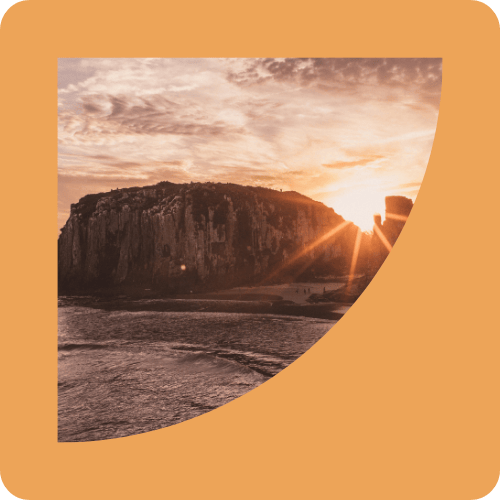Fact Sheet: Archeological Dig in Oka, Quebec
Author
Holly Giacomodonato
Hi, my name is Holly and I am the author of this post. I want to state that I do not identify as an Indigenous person and I do not intend to speak on behalf of Indigenous communities. I am speaking from a position of privilege and power as a white-settler currently living on unceded Mi’kmaq lands. I hope to share the information I have found on this subject and bring attention to this issue affecting Mohawk and Haudenosaunee lands and peoples.

Summary:
The municipality and the Mayor of Oka are planning an archeological dig on contested lands that members of the community suspect to be Mohawk burial ground. It is also the site of the towns old recreation center and some parking lots
The dig was reportedly expected to begin at the end of June, 2020
The traditional Rotinonhseshá:ka, People of the Longhouse, and the government of the Kanehsatà:ke were not properly consulted prior to the planning of the dig
The traditional government does not believe the band council or chief have the right to negotiate or consent to projects on the land
Members of the Longhouse are calling on members of Federal and Quebec governments to halt the dig
In July of 1990, there was a 78-day standoff between Mohawk protestors, Quebec police, the RCMP and even the Canadian Army following Mohawk protests regarding a proposed expansion of nine-hole golf course, including the development of townhouses, into a pine forest and a small cemetery that includes Mohawk burial ground (1). This conflict is referred to as the Kanensatà:ke/Mohawk Siege or Resistance, and is commonly known as the Oka Crisis.
Thirty years later the underlying issue of land dispossession, access to land, and sovereignty is still causing tension in the area. In addition to a housing construction project, a proposed archeological dig in the town of Oka is currently an issue in the community (2,3,4). The Mayor of Oka and the municipality planned to reconstruct parking lots and construct a new community hall on the site of the town’s old recreational center (3). Under Quebec law, they first have to do a soil test and an archeological dig (4). While this is not the same site that contains the pines and burial ground at the center of the Oka crisis, the land on which the old recreation centre sits is also thought to be an ancient Indigenous burial ground in the area (3). The dig was expected to start on June 30th, 2020 (5).
The Rotinonhseshá:ka, or People of the Longhouse, the traditional government of Kanehsatà:ke are adamantly opposed to the dig (2, 3). Ellen Gabriel, a member of the longhouse and a spokesperson for her community during the Oka Crisis (6), states that members of the longhouse were not consulted about this project (3), and explains that the Mohawk elected band council and chief do not have the right to negotiate or consent to the project on behalf of the Mohawks of Kanehsatà:ke because band councils are a part of the Canadian system of governance created under the Indian Act (4).
On June 29th, a meeting was organized by Sylvie D’Amours the Minister of Indian Affairs Quebec, Marc Miller the federal Minister of Indigenous Services, the Municipality of Oka, the Mohawk Council and the members of the longhouse to discuss the project. The members of the longhouse did not feel listened to, read a letter, and left (4). A letter and petition written by the members of the longhouse posted online calls on representatives of the federal and Quebec governments- Nathalie Roy, Sylvie D’Amours, and Marc Miller to halt all land dispossession caused by development and to halt all proposed archeological digs (2).
This blog post sits in direct opposition to this article from Radio CBC. We also want to note that we felt this reporter’s conduct was inappropriate (when reaching out to both us and Friday’s for Future University of Toronto, as youth-led activist groups).
We can provide details directly to Radio CBC if representatives reach out to [email protected].
An updated comment from Friday’s for Future University of Toronto: In addition to the previously inappropriate conduct by said reporter, in recent days she has also attempted to seek out and follow some of our member’s personal social media accounts. I believe this further underscores the unprofessional nature of how this situation was and continues to be handled by Radio CBC and a lack of sensitivity and understanding of how the present debate is re-traumatizing for many Indigenous peoples.
References
- Tabitha Marshall. The Canadian Encyclopedia [Internet]. 2013 Jul 11 [Updated 2020 Jul 9; cited 2020 Jul 23]. Available from: https://www.thecanadianencyclopedia.ca/en/article/oka-crisis
- No archeological digs in Kanehsatà:ke [Internet]. The Action Network: Rotinonhseshá:ka of Kanehsatà:ke; 2020. LETTER FROM Rotinonhseshá:ka of Kanehsatà:ke; 2020 [Cited 2020 Jul 23]; [about 1 screen down]. Available from: https://actionnetwork.org/petitions/no-archeological-digs-in-kanehsatake
- Deer J. Planned excavation work in Oka, Que., digs up concern from Mohawk Longhouse. CBC [Internet]. 2020 Jul 3 [cited 2020 Jul 23]; Indigenous:[about 2 p.]. Available from: https://www.cbc.ca/news/indigenous/kanesatake-opposition-oka-excavation-1.5636533
- Pam Palmater. Ellen Gabriel On Protecting Our Lands [Internet]. SoundCloud: Warrior Life; 2020 Jul 10 [cited 2020 Jul 23]. Available from: https://soundcloud.com/pampalmater/ellen-gabriel-on-protecting-our-lands
- Giroux S, Ross S. Kanesatake leaders angry that Oka plans to do archaeological dig, saying town lacks proper permits. CTV News Montreal [Internet]. 2020 Jun 25 [cited 2020 Jul 23];Montreal News:[about 1 p.]. Available from: https://montreal.ctvnews.ca/kanesatake-leaders-angry-that-oka-plans-to-do-archaeological-dig-saying-town-lacks-proper-permits-1.5000741
- N.d. Katsi’tsakwas Ellen Gabriel [Internet]. Assembly of First Nations: N.d. [cited 2020 Jul 23]. Available from: http://www.afn.ca/katsitsakwas-ellen-gabriel/


